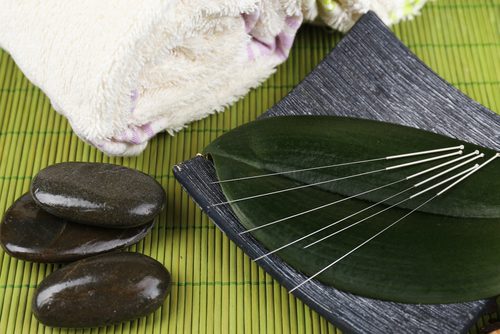 Many people cringe at the thought of needles, regardless of how they are used. How many friends do you have that would rather suffer when they are sick than go to the doctor and get a shot? This is most likely why people shy away when acupuncture is mentioned as a form of treatment for themselves or their pets.
Many people cringe at the thought of needles, regardless of how they are used. How many friends do you have that would rather suffer when they are sick than go to the doctor and get a shot? This is most likely why people shy away when acupuncture is mentioned as a form of treatment for themselves or their pets.
Having no other options generally breaks through the needle-phobia since people will often try acupuncture as a “last resort”. Regardless of how they come to try it, they realize that it’s not only pleasant but actually produces results.
What is it?
Acupuncture is the insertion of needles into specific points on the body to produce a healing response. Each point has a specific action when stimulated. The technique has been used for thousands of years by veterinarians in China both as a treatment for ailments and as a preventative medicine. Although it won’t cure every condition, clinical research has shown positive results in both animals and humans.
How does it work?
Without getting too technical, stimulating acupuncture points results in specific changes in the central nervous system. These points that have pain-relieving properties associated with them activate pain-association brainstem regions.
The short answer is that acupuncture produces pain-relieving properties that assist in the management of osteoarthritis and musculoskeletal pain. In addition, acupuncture can assist in the body healing itself by producing physiological changes – stimulating nerves, increasing circulation, relieving muscle spasms, and releasing endorphins and cortisol.
Is it Painful?
For small animals, the needles are so small that it is virtually painless. Most animals become very relaxed and some even fall asleep during the procedure.
Are there side effects?
Your dog may seem lethargic or sleepy for the first 24 hours as stored energy is released. Typically this indicates a physiological change and is generally followed by improvement in your dog’s condition. (Think about how you feel after getting a vigorous massage or visiting the chiropractor.)
Is it safe?
Canine acupuncture is one of the safest forms of medical treatment provided that it is administered by a properly-trained veterinarian. It should also never be administered without a medical diagnosis and ongoing assessment from a licensed veterinarian. This is primarily due to the fact that acupuncture can mask pain or other symptoms that may delay a proper diagnosis.
What do I look for in a canine acupuncturist?
If you’re considering acupuncture for your dog, there are two things you should require of the acupuncturist:
- He/she should be a licensed veterinarian.
- He/she should have formal training in veterinary acupuncture.
Acupuncture, combined with traditional therapies, is highly effective.
A trained veterinarian who is a certified veterinary acupuncturist has the skill and knowledge to understand the interactions between different forms of treatment and interpret your dog’s response accordingly.


